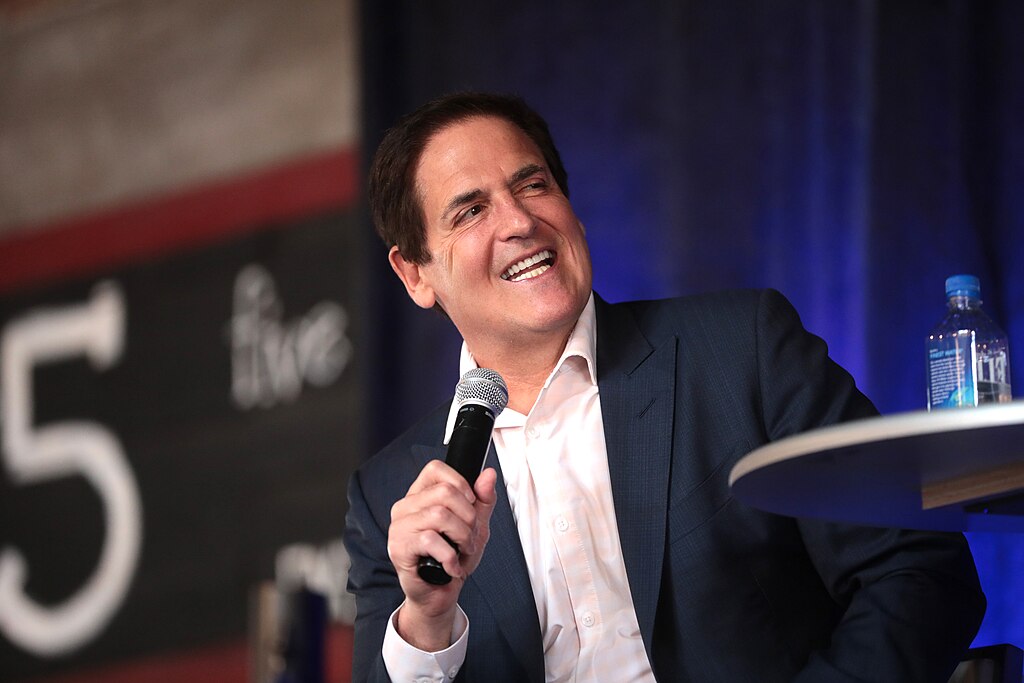Billionaire entrepreneur Mark Cuban recently made waves by expressing his willingness to collaborate with the Trump administration if asked, despite his past criticisms of former President Donald Trump. In a surprising twist, Cuban, who has often clashed with Trump politically, declared that his top priority is putting America first.
“If they ask, I’m open to it,” Cuban said in an interview, sparking immediate reactions from political observers. “I’m America first, and if I can help in any way, I’ll do what’s needed.”
Cuban’s remarks come as a surprise to many who have followed his vocal opposition to Trump’s policies during his presidency. However, the Dallas Mavericks owner emphasized that his personal feelings about Trump would not get in the way of serving the country. “I’ve always said I’ll do whatever it takes for America, and that hasn’t changed,” Cuban reiterated, stressing his dedication to the nation’s interests.
While Cuban’s willingness to work with the Trump administration may seem unexpected, his reasoning has sparked debate among both political allies and opponents. Some see it as a pragmatic move, recognizing the influential role Trump continues to play in U.S. politics. Others, however, view it as a reversal of Cuban’s previous stance, questioning his sudden shift in attitude.
Critics were quick to point out that Cuban has frequently spoken out against Trump, raising eyebrows at this newfound openness to cooperation. “Mark Cuban spent years criticizing Trump, and now he’s ready to work for him? What changed?” asked one political analyst. The potential controversy stems from Cuban’s past statements, which included strong rebukes of Trump’s policies and leadership style.
Despite the backlash, Cuban remains steadfast in his decision, emphasizing that his focus is on the greater good. “This isn’t about me or him. It’s about doing what’s best for the country,” he said.
Cuban’s statement also raises questions about what role he would play in a Trump-led government. Given his extensive background in business, finance, and technology, there is speculation that Cuban could take on a significant position related to economic policy or innovation. Some have even suggested that Cuban’s involvement could bridge gaps between the private sector and government, fostering new opportunities for collaboration.
However, not everyone is convinced that such a partnership would work smoothly. Political commentator and longtime Cuban critic, Jane Miller, voiced skepticism about the possibility of Cuban and Trump working together harmoniously. “They’re both strong personalities with very different ideas. It’s hard to see how that would play out in practice,” Miller said.
As the public continues to digest Cuban’s comments, one thing is clear: his declaration has reignited discussions about bipartisanship and the possibility of working across political lines in the interest of national unity. Whether or not Cuban will actually be tapped for a role in the Trump administration remains to be seen, but his willingness to set aside personal differences for the sake of the country has certainly stirred the political landscape.



 Netanyahu to Meet Trump in Washington as Iran Nuclear Talks Intensify
Netanyahu to Meet Trump in Washington as Iran Nuclear Talks Intensify  Trump Lifts 25% Tariff on Indian Goods in Strategic U.S.–India Trade and Energy Deal
Trump Lifts 25% Tariff on Indian Goods in Strategic U.S.–India Trade and Energy Deal  Nighttime Shelling Causes Serious Damage in Russia’s Belgorod Region Near Ukraine Border
Nighttime Shelling Causes Serious Damage in Russia’s Belgorod Region Near Ukraine Border  Trump Signs “America First Arms Transfer Strategy” to Prioritize U.S. Weapons Sales
Trump Signs “America First Arms Transfer Strategy” to Prioritize U.S. Weapons Sales  U.S. Announces Additional $6 Million in Humanitarian Aid to Cuba Amid Oil Sanctions and Fuel Shortages
U.S. Announces Additional $6 Million in Humanitarian Aid to Cuba Amid Oil Sanctions and Fuel Shortages  Pentagon Ends Military Education Programs With Harvard University
Pentagon Ends Military Education Programs With Harvard University  Federal Judge Restores Funding for Gateway Rail Tunnel Project
Federal Judge Restores Funding for Gateway Rail Tunnel Project  Missouri Judge Dismisses Lawsuit Challenging Starbucks’ Diversity and Inclusion Policies
Missouri Judge Dismisses Lawsuit Challenging Starbucks’ Diversity and Inclusion Policies  TrumpRx Website Launches to Offer Discounted Prescription Drugs for Cash-Paying Americans
TrumpRx Website Launches to Offer Discounted Prescription Drugs for Cash-Paying Americans  New York Legalizes Medical Aid in Dying for Terminally Ill Patients
New York Legalizes Medical Aid in Dying for Terminally Ill Patients  Jack Lang Resigns as Head of Arab World Institute Amid Epstein Controversy
Jack Lang Resigns as Head of Arab World Institute Amid Epstein Controversy  Trump Says “Very Good Talks” Underway on Russia-Ukraine War as Peace Efforts Continue
Trump Says “Very Good Talks” Underway on Russia-Ukraine War as Peace Efforts Continue  Norway Opens Corruption Probe Into Former PM and Nobel Committee Chair Thorbjoern Jagland Over Epstein Links
Norway Opens Corruption Probe Into Former PM and Nobel Committee Chair Thorbjoern Jagland Over Epstein Links  TrumpRx.gov Highlights GLP-1 Drug Discounts but Offers Limited Savings for Most Americans
TrumpRx.gov Highlights GLP-1 Drug Discounts but Offers Limited Savings for Most Americans  U.S. to Begin Paying UN Dues as Financial Crisis Spurs Push for Reforms
U.S. to Begin Paying UN Dues as Financial Crisis Spurs Push for Reforms  Trump Signs Executive Order Threatening 25% Tariffs on Countries Trading With Iran
Trump Signs Executive Order Threatening 25% Tariffs on Countries Trading With Iran  Ohio Man Indicted for Alleged Threat Against Vice President JD Vance, Faces Additional Federal Charges
Ohio Man Indicted for Alleged Threat Against Vice President JD Vance, Faces Additional Federal Charges 































